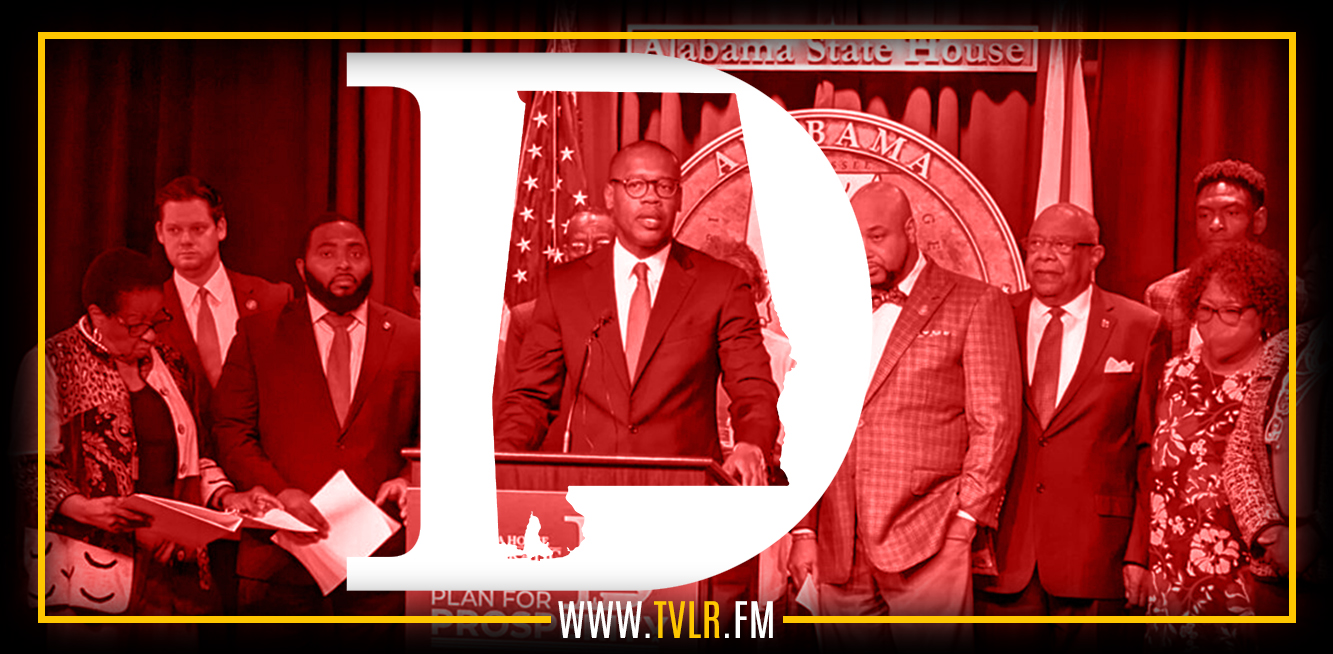emocrats in the Alabama House of Representatives held a press conference on March 6, when they unveiled their legislative agenda. The AL House Democratic Caucus is calling their legislative agenda the “Plan for Prosperity” and if they said it once, they said it 100 times that it is a “pro-growth” agenda.
If you read the recent op-ed from AL House Democrats Minority Leader Anthony Daniels, or listened to our discussion on it a couple weeks ago, then you have some idea of how the agenda was framed. As with the Daniels op-ed calling for a cut to the overtime (OT) tax, everything is couched in business friendly language and there’s likely nothing that was said during the 50 minute press conference that would offend the Chamber of Commerce or the Business Council of Alabama.
That is not what I would call a “bold agenda”, as Daniels and others have labeled it. In fact, at one point Daniels said he didn’t see anything that should be problematic for his colleagues across the aisle, which tells you they confined their imaginations to what they thought possible under a GOP supermajority. While I get the strategy, my thinking is that when you are a superminority and the other side has the votes to do whatever they want, that is the time to be truly bold and draw contrasts. But that’s just me..
Don’t get me wrong. There were plenty of positive ideas that would be good for the state. Now whether Alabama Republicans will respond favorably to these very mild reforms is another matter. But while this incrementalist agenda would be a step in the right direction, it is but a small step for a state in need of a giant leap forward.
Worth mentioning that while there was plenty of Chamber of Commerce friendly language, there was no use of the words “union” or “labor” or “working class” throughout the nearly hour-long press conference.
Taxes
Alabama’s tax system is highly inadequate and highly regressive. AL is 49th in tax collection, 50th if you factor in lottery and gambling. And the burden of taxes and fees that we do have fall disproportionately on the working class rather than the wealthy and big businesses most able to afford it. Alabama’s extremely low property taxes disproportionately benefit the wealthy, often out of state, large landowners. Corporations are provided generous subsidies and incentives to build in Alabama in the name of “job creation.” Meanwhile, working class Alabamians are bearing the tax burden. And while groups such as Alabama Arise have proposed removing the Federal Income Tax (FIT) deduction from the Alabama code, a tax break overwhelmingly favoring the highest earners, there was no such proposal in the press conference. When one legislator mentioned Alabama’s low property tax, it was fairly evident that he went off-script judging from the reaction of his colleagues, and the press conference quickly got back on track. Alabama’s House Democrats avoided any call to tax the wealthy and large corporations, the biggest winners of Alabama’s tax code.
Sure, a removal of the taxes on groceries and OT would, in my opinion, be a welcome relief for working class Alabamians and would at least begin to address one side of the regressive nature of our tax structure. It appears the AL House Dem’s are saying that since the ALGOP ostensibly loves tax cuts, they’re daring them to cut taxes for low and middle income folks. And perhaps they will. Whether this will result in less revenues for education funding is an important question that has yet to be adequately answered.
But quite obviously, this does nothing to address the inadequacy of the tax structure in the state. Just last year, 18 new laws were passed that lowered the state’s revenues by $160 million a year going forward. We know more tax cuts are on the way and rebates are being floated. Meanwhile, our Federal Reserve is doing everything it can to spike unemployment and bring the economy into a recession. The budgets may look healthy now, compared to other years, but that’s no guarantee they will stay that way.
Bold Agenda?
The 2023 legislative agenda of the AL House Democratic Caucus is positive, but far from groundbreaking. Having an agenda of practical bills that at least could theoretically garner bipartisan support is a fine thing and I don’t want to dismiss it. But let’s not forget that when your state ranks at or near the bottom on every single quality of life metric, the needs of the people are vast. The folks responsible for those deplorable conditions are not who I would consult to define the boldness of my agenda. And when the other side has a supermajority, you don’t get to shape the debate. Having a slate of practical bills should not preclude representatives from advancing a truly bold agenda that really gets at not just the symptoms but also the causes of Alabama’s issues. If not now, when in a superminority, when exactly is the time to be bold? If now is not the time to draw real contrasts with the other side, just when is it?
What about a vision of Alabama where none of our communities are living in conditions bad enough to garner comment from the United Nations? What about a vision of Alabama where our reputation is not associated with exploitation and injustice? What about a vision of Alabama for the many, and not just for the few? In a time when multiple crises affect our people, the working class of Alabama deserves a bold agenda and a bold vision for the better Alabama that is not only possible, but necessary.
Listen for a full discussion of the legislative agenda, including highlighted clips and more details on elections, education, criminal justice, healthcare, and the economy:
